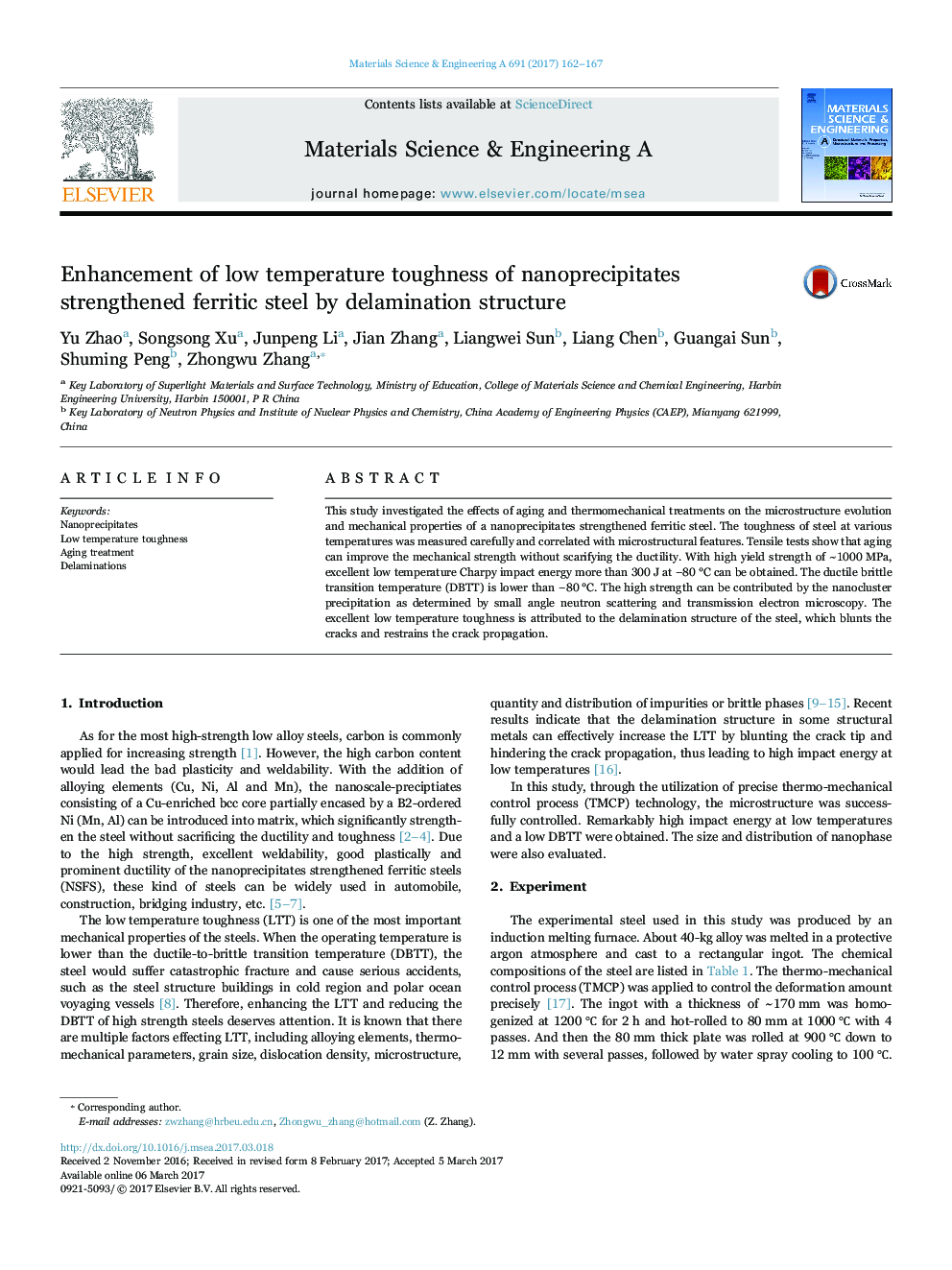| کد مقاله | کد نشریه | سال انتشار | مقاله انگلیسی | نسخه تمام متن |
|---|---|---|---|---|
| 5455913 | 1514652 | 2017 | 6 صفحه PDF | دانلود رایگان |
عنوان انگلیسی مقاله ISI
Enhancement of low temperature toughness of nanoprecipitates strengthened ferritic steel by delamination structure
ترجمه فارسی عنوان
تقویت سختی دمای پایین نانوذرات، فولاد فریتیک را با استفاده از ساختار خالص سازی تقویت می کند
دانلود مقاله + سفارش ترجمه
دانلود مقاله ISI انگلیسی
رایگان برای ایرانیان
کلمات کلیدی
موضوعات مرتبط
مهندسی و علوم پایه
مهندسی مواد
دانش مواد (عمومی)
چکیده انگلیسی
This study investigated the effects of aging and thermomechanical treatments on the microstructure evolution and mechanical properties of a nanoprecipitates strengthened ferritic steel. The toughness of steel at various temperatures was measured carefully and correlated with microstructural features. Tensile tests show that aging can improve the mechanical strength without scarifying the ductility. With high yield strength of ~1000 MPa, excellent low temperature Charpy impact energy more than 300 J at â80 °C can be obtained. The ductile brittle transition temperature (DBTT) is lower than â80 °C. The high strength can be contributed by the nanocluster precipitation as determined by small angle neutron scattering and transmission electron microscopy. The excellent low temperature toughness is attributed to the delamination structure of the steel, which blunts the cracks and restrains the crack propagation.
ناشر
Database: Elsevier - ScienceDirect (ساینس دایرکت)
Journal: Materials Science and Engineering: A - Volume 691, 13 April 2017, Pages 162-167
Journal: Materials Science and Engineering: A - Volume 691, 13 April 2017, Pages 162-167
نویسندگان
Yu Zhao, Songsong Xu, Junpeng Li, Jian Zhang, Liangwei Sun, Liang Chen, Guangai Sun, Shuming Peng, Zhongwu Zhang,
